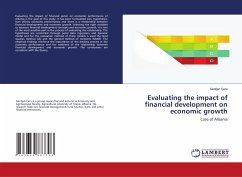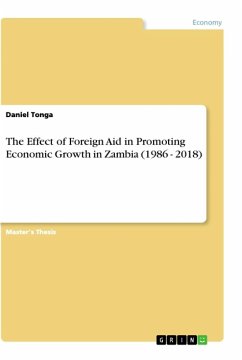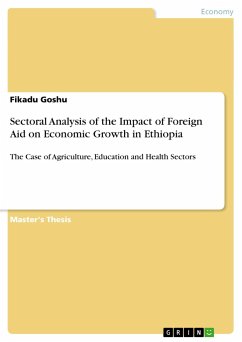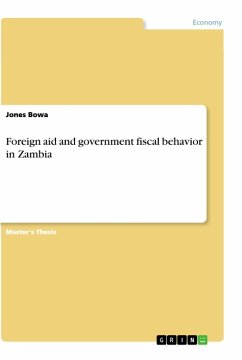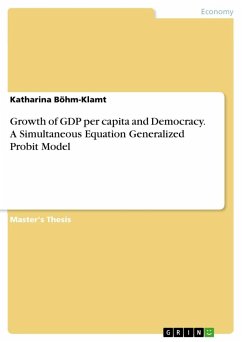
Evaluating the Effect of Foreign Aid on Economic Growth of Rwanda
Versandkostenfrei!
Versandfertig in 6-10 Tagen
24,99 €
inkl. MwSt.

PAYBACK Punkte
12 °P sammeln!
The book was designed for all year graduate and post graduate courses in macroeconomics. But it can be used (either on its own or in conjunction with an intermediate text) for students with strong backgrounds in mathematics, statistics and economics in professional schools and advanced undergraduate programs. It can also provide a tour of the field for economists and others working in areas outside macroeconomics. Furthermore the book can help in the following analysis: Aid promotion and export shocks about recession in industrial countries that have adverse impact on both the value (price) an...
The book was designed for all year graduate and post graduate courses in macroeconomics. But it can be used (either on its own or in conjunction with an intermediate text) for students with strong backgrounds in mathematics, statistics and economics in professional schools and advanced undergraduate programs. It can also provide a tour of the field for economists and others working in areas outside macroeconomics. Furthermore the book can help in the following analysis: Aid promotion and export shocks about recession in industrial countries that have adverse impact on both the value (price) and the volume (quantity) of commodity exports from developing countries. Shocks originating in capital market due to cost and constraints on international borrowing. Import shocks: Mainly countries importing oil and food suffered from steep rise in their prices. Oil and food exporting countries benefited. Exchange rates and trade: When the dollar rises, dollar import prices of developing countries seem to fall less than their export prices. The adverse export effect outweighs the favorable import effect. Interest rates: When interest rate increases, cost of fresh borrowings increases.



